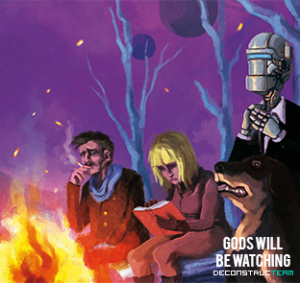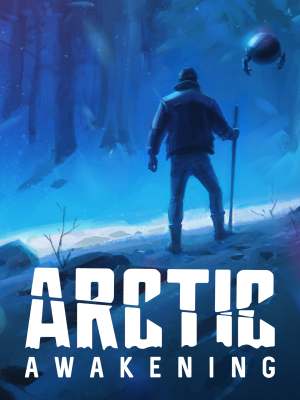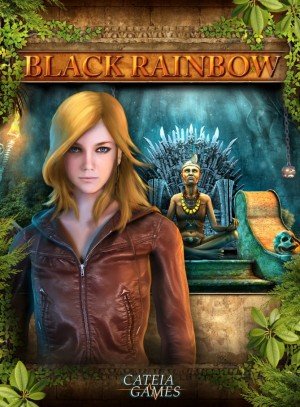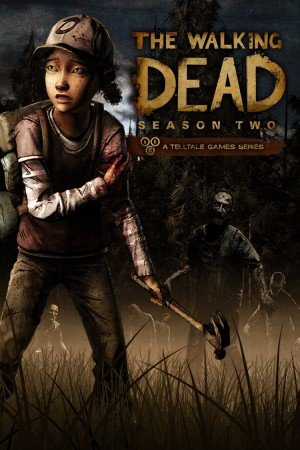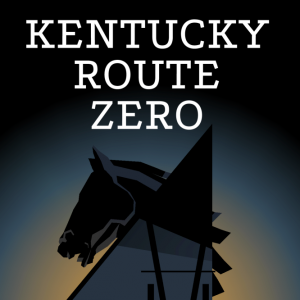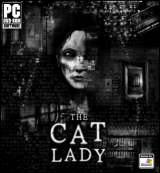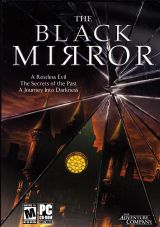Review for Gods Will Be Watching
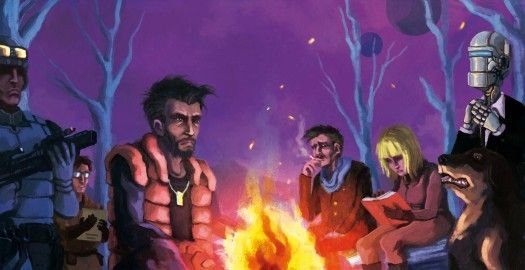
Some of the greatest films ever made are hard to sit through. Some of the greatest novels of all time are difficult to finish. The same should be true of games – just as not every movie is a breezy summer blockbuster, not all games need to have fun as the ultimate goal. Art can be difficult, even frustrating, as long as it still engages on some level – maybe it has a lesson to teach, or the promise of a sense of accomplishment upon completion.
It seems that Gods Will Be Watching, from Deconstructeam and Devolver Digital, was intended to be that kind of difficult experience. Not just challenging in its design, but emotionally harrowing as it puts you through the psychological ringer over and over and over.
The game certainly succeeds in instilling a sense of anguish and helplessness. That could be interesting, too, if the game gave you something in return for your efforts – characters to care about, difficult moral choices to navigate, or a sense of overcoming a great challenge. Instead, playing Gods feels more like getting kicked in the shins over and over again at random intervals by a misanthropic spreadsheet. My time with it has been some of the most frustrating and infuriating of my entire gaming career, and despite some excellent artwork and occasional glimpses of a much better game, I can't recommend it.
Gods Will Be Watching began life as an experimental entry in Ludum Dare 26, a 48-hour game jam with the theme of minimalism. The original iteration had you managing a crew of scientists, soldiers, a robot, and a dog who had been stranded on an alien planet. Within the game's single screen, you had to carefully manage the crew's health and morale while also making efforts to find rescue with extremely limited resources and time. It was a clever and effective experiment, one that left a large impression on many who played it.
The game jam version has been reworked into one of seven total chapters that are variations on the original mechanics, strung together with a more fleshed-out narrative. Unfortunately, it should have stayed as a half-hour long game jam game. What works as a short dive into a hopeless experience transforms into a monumentally frustrating exercise in repetition and futility when stretched out into a full-length title. More of a resource management game with point-and-click trimmings than a traditional adventure, Gods has little of what you would expect. It looks like a retro-styled point-and-click, but it plays very differently.
While each chapter varies in the specifics, most of the scenarios place you in a single room or area with several characters, resources to manage, and a time limit. Clicking around the environment brings up menus showing actions you can take or order other characters to take. Actions highlighted in red will advance the clock by a discrete amount, while green actions are free. In some cases, taking a single action will advance to the next "turn," while in others you can give orders to each character before choosing to carry them all out simultaneously.
Under the hood are a number of variables being tracked. For example, in the chapter adapted from the original Ludum Dare game, in which the player and his crew are stranded in an alien wilderness, each character has a morale rating that is affected by hunger, exhaustion, the condition of their colleagues, events like predator attacks, temperature, and so on. Each turn, their morale will fall unless certain actions are taken, like giving a pep talk or feeding them a cooked meal. But cooking that meal takes time that could instead be used to repair the radio that is your only chance off the planet, or to gather more wood to prevent the fire from going out, or to produce medicine to treat the virus that runs rampant on the planet's surface.
Each scenario comes down to spinning plates, managing each of these variables by spreading out your attention. If any of these variables falls too low, bad things happen, usually meaning that a crew member will go insane, get sick, or die. If that happens, the actions they could perform are no longer available and your chances of escape are that much lower.
The game obfuscates the state of these variables, as well as the effect that your actions have on them. Take hunger, for example. There is no hunger meter, and until you have tried all of the options, there is no way to know how much eating raw meat will affect that invisible number as opposed to a cooked meal or going hungry for a night. It's not clear whether having a character perform an action makes them hungrier. Nor is it clear if their hunger level rises at the same rate every night or if it is randomized, or even how large an impact hunger has on their morale. And so on, for dozens of variables.
While it's possible to eventually suss out the values of certain elements and actions through trial and error, it's nearly impossible to predict them ahead of time. Instead of each chapter testing your survival acumen or pushing you into uncomfortable moral territory, this lack of clarity turns the game into one of fumbling through each new chapter's arbitrary rules until you have seen each action play out enough times to hazard a guess as to what's happening behind the scenes.
Randomness plays a large role as well. Many actions display a percent chance for success, while others are affected by random outcomes but don't surface that information. It is unfathomably irritating to play a chapter for half an hour (perhaps your tenth time through this particular section, keep in mind), having finally figured out the best strategy to take, only to have your attempt fall apart because of a variable you had no control over. Perhaps the most blatant example of this is during a torture sequence in which you are subjected to a game of Russian Roulette, twenty to thirty minutes into the chapter. You must survive four or five shots from a revolver loaded with a single bullet. If the random number generator underlying the game decides that any one of those chambers contains a bullet – instant game over, nothing you can do about it, so sorry. The developers have recently added a mode that removes the element of chance from the game, but this is only putting a band-aid on a much larger wound.
Game overs are frequent, absolute, and often unavoidable. In the wilderness survival chapter, if you die, the game is over. If you run out of time without repairing the radio, the game is over. If the fire goes out, the game is over. If animals attack and you are unprepared, the game is essentially over. If you make a few bad choices early on and lose some characters, the game may not be over for another 15 or 20 turns, but there's no way out of the hole you've dug. If you get a game over, you're back to the beginning of that chapter. There is no mid-chapter save of any sort, and with many of the chapters reaching 45 minutes or an hour in length (on each attempt), the repetition of starting at the beginning grows unbearably annoying.
Once you finally reach the end of a chapter, you are treated to a minute or two of scripted exposition and then thrust into the next nightmare scenario to do it all over again, ad nauseam. The game does offer alternate modes that significantly reduce the difficulty and allow you to focus on the story, but that only replaces frustration with tedium, and the story isn't interesting enough to hold the game up on its own.
Gods subscribes to the intentionally vague, fragmented school of storytelling: especially early on, each chapter jumps around in time without clearly placing it in the greater narrative. It's up to you to put the pieces together. That's great when the pieces do come together, but here, the story never really adds up to much: Sgt. Burden, a soldier for the Everdusk Company for the Universe Knowledge (yep, that's really what it's called) works alongside a crew of scientists to discover and stop the plans of a bioterrorism group Xenolifer (also really what it's called). Burden is dedicated to stopping them, yet he also feels some sympathy for them, having got to know their leader Liam while undercover within the organization. He actually agrees with their goals, if not their methods.
It's not a bad setup, but the game is so focused on its survival gameplay that the characters become nothing more than resources to manage. Any character or plot development is shoved into non-interactive sequences between scenarios that focus more on infodumping exposition than allowing for any sort of exploration of the game's world. It's really hard to care about the fate of the galaxy when you know nothing about it. Dialogue during the scenarios is terse and utilitarian, with the same scraps of script repeating throughout a chapter (during the torture sequence, for example, your captors will ask you random questions, often asking the same question multiple times in a session). During the intermission cutscenes, the dialogue is littered with clichés and profanity (to show you how grim things are), often translated awkwardly from the team's native Spanish.
At least the game looks and sounds good while you're cursing at it. The artwork is gorgeous throughout. It's a slick, modern take on retro pixel art in the same vein as Superbrothers: Sword & Sworcery and Fez – you would never mistake it for something that came out in the ‘90s even though it is clearly inspired by it. Backgrounds are detailed and full of tiny animated touches. Each character is visually distinct, with lots of unique animations that evoke their emotional state with only a few frames and pixels – especially important because there's no voice acting to convey that sort of thing. I wish the game was uglier, honestly. I was frustrated by the loveliness because it was a world I desperately wanted to explore, but couldn't. I was instead limited to single screens that only hint at the world beyond. The music is a collection of tense, dark electronic pieces that perfectly evoke the game Gods clearly wants to be.
Once I stumbled through to the end of the game out of obligation, I reflected on the fact that I didn't have fun with Gods Will Be Watching. Like, at all. Some of that is intentional. After all, the developers say right on the difficulty select screen that you "will hate them." What are you supposed to do with that? Perhaps if the game had a poignant experience to share or something to teach about survival or perseverance or tough choices, the frustration would be worth it. But unfortunately it doesn't, and it isn't. There are glimmers of that game – moments where you order a character to make a horrible sacrifice, moments that almost feel raw and impactful.
And then you fail and restart, fail and restart, fail and restart...
Review copy provided courtesy of GOG.com.


